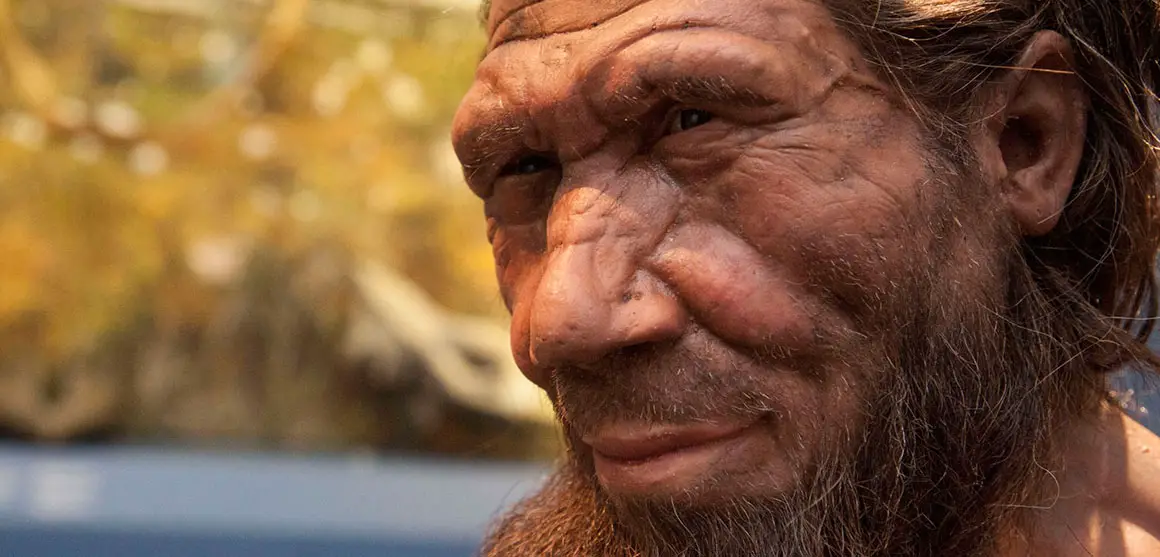 he more technology is advancing the more we are able to uncover about our past and most importantly the impact our ancestors had on this world. That is why you will be seeing me write more often about Homo sapiens and our evolution from the prehistoric to the modern world. In this article, I will discuss a new theory that states that the powerful sense that Homo sapiens have shown is the cause of many important prehistoric events from the stone age.
he more technology is advancing the more we are able to uncover about our past and most importantly the impact our ancestors had on this world. That is why you will be seeing me write more often about Homo sapiens and our evolution from the prehistoric to the modern world. In this article, I will discuss a new theory that states that the powerful sense that Homo sapiens have shown is the cause of many important prehistoric events from the stone age.
This all started with various 3D analysis of skulls found from the stone age of both neanderthals and homo sapiens by various institutions. The 3D scan helped to showcase that the nasal canals of Homo sapiens compared to Neanderthals were much wider, meaning that they had a better sense of smell. At first glance, this did not seem like a very important discovery, but some experts within the field dug deeper to see that the better sense of smell presented by Homo sapiens played an important role.
Smelling our way towards evolution

In a new book published in March 2021 entitled Delicious: The Evolution of Flavor and How it Made us Human, authors Rob Dunn and Monica Sanches suggest that Homo sapiens, as a species, was more adventurous and curios (compared to the Neanderthals) and started to look for complex flavors and aromas using their smell.
The reason that our ancestors started cooking their food was to encapsulate different aromas within food through various cooking methods and using different spices that were only discovered due to their powerful sense of smell. This led to what the authors refer to as an “aroma rush”. This may be also the reason that homo sapiens started crafting cooking instruments and even using fire in the cooking process. For many years most Homo sapiens would eat their food raw.
Besides all this, the authors also mention that this powerful sense of smell gave our ancestors the ability to survive longer by being able to smell if food has gone bad or not. Rob Dunn from the University of North Carolina made an argument stating that due to the abundance of food created by their new innovative ways of hunting, the homo sapien had options, therefore started experimenting with new flavors.

This offered the Homo sapiens an incredible advantage over the neanderthals within the 100,000 years war as not only were they able to tell what food was off and which was good, but also their ability to eat foods that must be cooked in order to be edible, enlarging their food supply. It is very difficult to justify, but you would not believe the high level of death caused by food poisoning due to rotten food within the stone age.
Professor Havarti, from the University of Tubingen in Germany, states that the sense of smell is directly linked to memories to an extent that no other sense is, meaning that this strong sense of smell also allowed a quicker evolution of the human mind, especially in the memory sector. This just goes to show the importance of this sense within the stone age and how it helped the homo sapiens push through on the evolutionary chain.
The bad side of evolution
Although everything sounds absolutely great about the way smell played towards the evolution of homo sapiens, it also came with a big drawback which more or less is relatable to today’s human nature ecosystem. The “aroma rush” did not only lead to new ways of preparing and cooking food, but also to hunting new sorts of animals.
The flavors within meat when cooked really grabbed the attention of Homo sapiens and started a small rampage on the local wildlife,at the time many species were near extinction due to the evolution of other predatory species.
This can also be blamed on the significant expansion that took place around 30,000 BC when the Homo sapiens species started migrating from Africa to every corner of the world. In a way, the Homo sapiens could not really be blamed as they had neither the capabilities nor the intelligence to track down if a species was near extinction and to be blatantly honest they probably didn’t care much.
Avid Writer with invaluable knowledge of Humanity!
Upcoming historian with over 30 million views online.
“You make your own life.”





